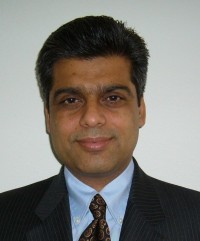GE EFS Amps Up Solar Power Investments in Japan
While General Electric has been investing in renewable energy projects for the last 10 years, its Energy Financial Services arm has picked up the pace of investments in solar power in the last two to three years, says managing director Sushil Verma—including doing multiple projects in Japan following the Fukushima nuclear event in 2011.
An unfortunate event in Japan in 2011 was a catalyst for a different kind of investment in the country for General Electric: solar power.
The events at Fukushima changed the energy landscape in Japan, resulting in policy changes by the government, says Sushil Verma, managing director of GE Energy Financial Services (GE EFS). He notes that General Electric had been doing business in the country for more than 100 years—including doing energy projects on the industrial side—and it made sense for the Energy Financial Services arm to finance projects there.
“Fukushima led to almost an urgent need for the country,” says Verma. “Certainly there was a need for a substitution for that power production and diversification of energy.” Prior to the disaster, Verma says there were 54 nuclear plants in Japan providing almost a third of the country’s energy, with a long-term plan to build even more. “All of that changed because of public opinion, event risk and cleanup costs,” he adds.
Renewable energy sources like solar and wind have gained favor in recent years in Japan for reasons that include the Fukushima nuclear disaster, but also in order to decrease the burden of importing gas and coal to the industrial country that has the third-largest power-generation capacity in the world, according to Verma. Wind and solar power rose in prominence in an effort to reduce dependence on imported coal and gas—and their often volatile prices—as well as nuclear power.
“The argument for renewables starts with it being green and environmentally good,” says Verma. “The cost of production of solar and wind-powered plants has been coming down, and the technology’s been improving. [The cost of] panels are coming down, reducing solar prices quite a bit. In the long term it makes sense, and there’s an abundance of solar resources.”
The Energy Financial Services arm of GE provides financial and technological investment in energy infrastructure projects around the world, including conventional power generation and distribution, oil and gas, pipelines and storage, thermal power, midstream and renewable energy.
Worldwide, GE EFS has made $1.9B of debt and equity investment commitments to solar power projects, with plans to invest more than $1B annually in renewables. So far in 2015, EFS has made three solar investments in Japan, with six investments made since it began investing in the country’s renewable energy market in 2014. This year it invested in Pacifico Energy’s solar project in Hosoe, a 96.2 megawatt (MW) solar power project under construction in Okayama. In addition, GE EFS completed two projects with the Tokyo-based Green Power Investment Corp.: a 42MW photovoltaic solar power project in the city of Futtsu and the 13.6MW Kanagi Solar Project in the Japanese prefecture of Shimane.
“When we started doing projects in Japan, we thought it would be hard to find bigger projects and they would have to be smaller,” Verma says. “To our surprise, we have done different sizes: small, medium, and really big.” He describes the small projects as 14 megawatts; medium is between 30 and 50 megawatts, and “really big” is 230 megawatts.
Finding space and the correct location to gather solar resources in Japan is challenging, Verma admits, and GE EFS isn’t backing rooftop projects because they would be too small. Factors that have to be looked at include whether the solar resource is good enough in a certain location, whether the land is viable, and suitable for solar development (a lot of the land in Japan is uneven).
As a business, GE EFS is increasing its commitments to solar projects—having already deployed $2B of investments, Verma says. He adds: “In the last two to three years, it’s been picking up, driven by technology, improvements, and cost reductions. It’s amazing, and it’s going to continue if it makes sense economically.”
GE Energy Financial Services has picked up the pace of investments in solar power projects in Japan in the last two to three years. Managing director Sushil Verma explains why diversifying the country’s energy sources is more important than ever.
